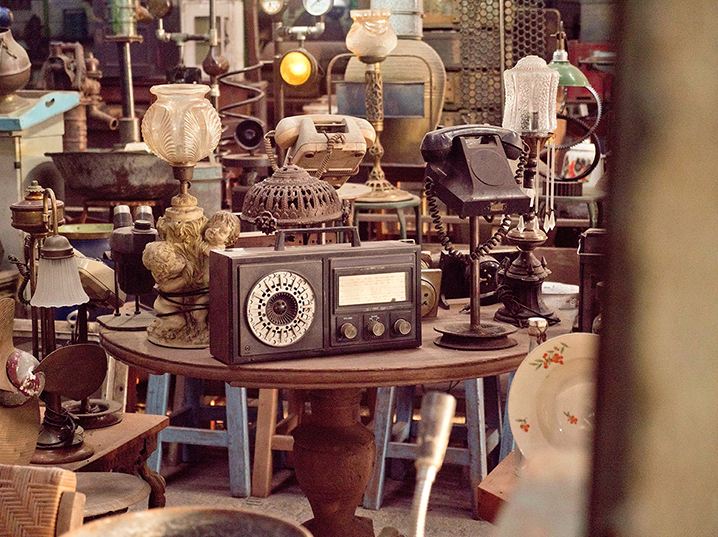A standard definition of an antique is something that is more than 75 years old. Cars from the 1950s and 1960s are sometimes mistaken for antiques, although they are just classics. To be effective in antique collecting, you must have a broad understanding of historical periods, manufactured objects, and sometimes even manufacturers.
Nothing can compare to the joy of collecting antiques among all the hobbies available. It will take time and effort to get started if you want to pursue antiquing as a pastime. However, if you start looking into these antiques and buying them, you will find them quite fascinating.
The best part of developing an antique passion is that you never know what you might come upon next. Antiques fascinate the majority of hobbyists.
Beginners interested in starting their collection of cherished antiques would benefit greatly from this opportunity to learn about the many different aspects of antique collecting.
Collecting Antiques Details
| Category: Art, Collection, History | Time: 30-60 min | Skill: Some |
| Initial Cost: $$$$ (500+) | Space: lots | People: alone |
| Long-Term Cost: Very High | Makes Money: Can, but not always | Location: indoor |
Antique Collecting Start-Ups
The more you know about antique collecting, the more likely you are to uncover expensive antiques. To prevent being deceived by fake or faulty antiques, it’s always a good idea to educate yourself on the subject.
With furniture, automobiles, and just about everything else that is considered vintage, there is something to be said for the craftsmanship of a previous generation. Antiques offer charm to a room’s decor, and while many current manufacturers are dabbling in the antique recreation business, they aren’t authentic antiques; they don’t have any natural history.
There are numerous items to collect. Many new collectors struggle to decide which collection to start with. It is simple to begin collecting.
The majority of novice collectors begin by researching collections, speaking with dealers, and perusing antique shops. They become interested in something and begin to amass a collection. Some people grow absorbed in their newfound hobbies and store a vast, diverse array.
Some things fall into both the collectible and antique categories. Tools, for example, maybe collectibles, but if they are old enough, they might be classified as antiques.
Who’s interested in this hobby?
Interested collectors are persuaded solely by a link to history or specific artifacts. Others, on the other hand, are motivated by a desire to gain money from their interest. Because of the possible financial reward, many antique collectors find themselves valuing their hobby even more.
Millions of people are drawn to antiques because of the history they contain. Other individuals used these antiquities, such as furniture to sit in, desks to write on, and chests to transport their goods as they immigrated from their birthplace to a new country that brought promise and hope.
There are numerous items to collect. Many new collectors struggle to decide which collection to start with. It is simple to begin collecting.
The majority of novice collectors begin by researching collections, speaking with dealers, and perusing antique shops. They become interested in something and begin to amass a collection. Some people grow absorbed in their newfound hobbies and store a vast, diverse array.
Some things fall into both the collectible and antique categories. Tools, for example, maybe collectibles, but if they are old enough, they might be classified as antiques.
Various antiques to buy for collection
There are different reasons why some goods are chosen for the collection. Objects are gathered for a variety of reasons, including:
- Price: The collector’s financial means allow for the purchase of the piece.
- Desire: A collector’s interest may include a unique desire or aspiration to acquire artifacts of a particular type.
- Enthusiasm: The collector is driven to acquire the stuff they desire. Finding artifacts can be challenging, but the collector’s desire to find them is motivated by their passion for them.
- Profit: A collector believes that an object can be obtained at a price sold for a profit.
- Room considerations: A collector has a limited or unlimited amount of space to gather and store goods.
- Value: The collector believes the objects can be obtained for a fair or reasonable price.
How to spot the perfect collectible
You must first study the numerous genres and styles designated for each sort of collectible to develop a keen eye for collecting rare antique artifacts. Knowing which antique genre appeals to you the most can help you focus your search and find the correct goods.
Antique collecting, whether for joy or profit, is a satisfying activity. It is possible to begin a collection by selecting one piece and then adding to it one by one or purchasing something completely different.
Collecting antique objects that you enjoy is an excellent place to start. It’s worth collecting as long as you’d like to have something for years to come.
Turn your collection into profit
To profit from antiques, you must be able to predict which products will maintain their overall demand. For many antique investors, this entails locating things with well-established fan bases and loyal followings. Chippendale furniture, Tiffany lamps, and other blue-chip collectibles have a proven track of increasing value over time, making them excellent investments.
Those looking to use antiques as a form of investment are frequently best served by choosing existing popular goods with long histories and impressive track records. You can profit from a significant investment in a lesser-known object, hoping that it will become more coveted in the future. Still, this technique is less reliable than choosing antiques that are already well-known for their appeal.
Conclusion
Collecting an antique is one of the few hobbies that can generate a profit. The majority of hobbies can be classified as money pits. This hobby can break the bank. It’s a source of income that inevitably eludes the amateur. On the other hand, antique collecting is a unique experience. It provides an advantageous position for the hobbyist.


